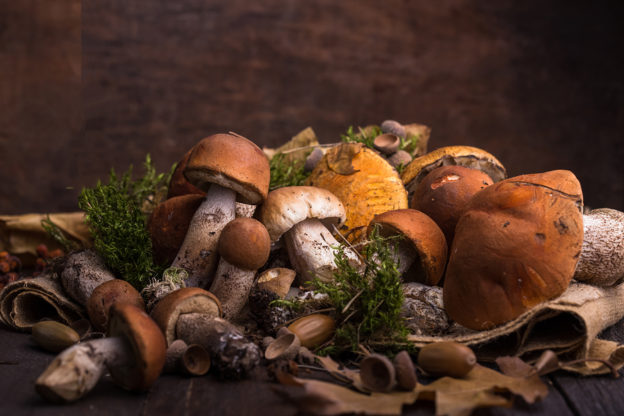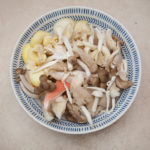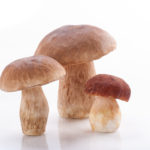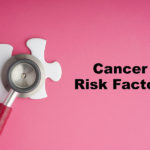By David Blyweiss, M.D., Advanced Natural Wellness
April 22, 2019
I savor mushrooms.
I eat them raw, stuffed, grilled and marinated. I sautee them with onions. I put them in salads, wraps, soups and stews. I chop them up and toss them into dips and sauces.
And every time I munch on these delicious fungi, I’m doing my body a world of good.
Now, you might think it’s because mushrooms are a pretty good source of proteins, vitamins and minerals. (They are! And I’m sure my body puts them to good use.)
But mushrooms also contain some very special compounds that make them an extremely powerful superfood.
Specifically, mushrooms are loaded with beta-glucans. This is a type of soluble fiber that has been gaining a great deal of attention in recent years. And for good reason!
MD Exposes the Hidden Danger to Your Eyes

When your eyesight starts to fail, it's a real problem. Suddenly you can't go to the grocery store... you can't get to the doctor if you have an emergency... you can't meet your friends for dinner…
Your "regular" doctor doesn't have time to keep up with the latest research. And the same goes for eye doctors. They go to school to learn how to fit you for glasses and contacts, but have no way of preventing the damage and loss of eyesight that threatens your freedom and independence.
Let me show you something that explains a LOT about how your eyes work.
In my FREE Special Report, I'll show you a HUGE, untapped resource for your eyes that safely and naturally restores clear, effortless eyesight.
Click here to get started...
Mushrooms have been used medicinally for thousands of years. And the beta-glucans might just be the reason for that. These compounds stimulate the immune system. They literally turn on cells that gobble up bacteria and infection… and kill tumor cells.
But that’s not all beta-glucans do.
They are also extremely effective when it comes to reducing insulin resistance, improving blood pressure and regulating lipids. Additionally, the beta-glucans in mushrooms act as prebiotics, which go to work immediately to stimulate a healthy gut microbiota. And as a regular Advanced Natural Wellness reader, you know how important your gut microbes are when it comes to protecting against disease.
Mushrooms are also high in another extraordinary compound. It’s ergothioneine (pronounced urr-go-thigh-in-in). For short, you can call it ergo.
Ergo is a powerhouse when it comes to protecting your DNA and powering up your mitochondria for life-long health and energy. It’s a powerful free radical scavenger, anti-inflammatory and protects against radiation. It also acts as a chelation agent against heavy metals such as mercury and cadmium.
Mushrooms are, by far, the most abundant source of ergo in our food supply. In fact, some types of mushrooms can contain concentrations up to 40 times higher than the second best food source of it.
Eating just 3.5 ounces of white button mushrooms daily for just 16 weeks can double your levels of ergo. And here’s the thing, out of all the mushrooms we eat, the ones we know as white button have the lowest ergo content (but still have higher amounts than most other foods).
So just imagine how much more of this antioxidant you would get if you ate the mushrooms with the highest ergo content, like porcinis or portabellas, on a daily basis.
With all of this good news in mind, it’s a great idea to add more mushrooms to your diet.
It doesn’t matter whether they are white button mushrooms, porcini, shiitake or portabella.
Are You Suffering From...
- Love handles and a pot belly
- Romance that isn't what it used to
- Forgetfulness and inattention
- Low (or no) strength and endurance
- A sex drive that's shifted into neutral...or worse
If so...you may have Mature Male Burnout. Click here to discover more about this unique condition and what you can do about it.
But don’t forget about the mightiest mushroom of all.
Reishi: The Mighty Mushroom for All that Ails You.
Reishi mushrooms are quite a bit different from the mushrooms you pick up at the grocery store. They’re tough and bitter.
But they contain specific healing compounds that other mushrooms don’t.
Triterpenes are best known for their chemopreventive and anticancer properties. And when reishi mushrooms are used in conjunction with chemotherapy on cancer patients, the patients are around 50% more likely to have positive changes than with chemo alone.
And like other types of mushrooms, reishis are also effective when it comes to boosting immune response, reducing insulin resistance, lowering blood pressure, regulating lipids and protecting your mitochondria.
Reishi mushrooms are traditionally prepared as teas.
I prefer using dried reishi that has been cut into strips. I believe that using these smaller pieces help extract more of the healthful compounds.
Just bring a pot of water to a boil, then add the pieces to the pot. You can add other ingredients too. Spices like ginger, licorice or cinnamon can help reduce the bitterness.
Turn it down to a simmer and let it stew for about two and half hours. Strain it off and let it cool down a bit before drinking.
SOURCES:
Akramiene D, et al. Effects of beta-glucans on the immune system. Medicina (Kaunas). 2007;43(8):597-606.
Stamets P, et al. Medicinal Mushrooms: Ancient Remedies Meet Modern Science. Integr Med (Encinitas). 2014 Feb; 13(1): 46–47.
Bashir KMI, et al. Clinical and Physiological Perspectives of β-Glucans: The Past, Present, and Future. Int J Mol Sci. 2017 Sep; 18(9): 1906.
Jayachandran M, et al. A Critical Review on Health Promoting Benefits of Edible Mushrooms through Gut Microbiota. Int J Mol Sci. 2017 Sep; 18(9): 1934.
Paul BD, et al. The unusual amino acid l-ergothioneine is a physiologic cytoprotectant. Cell Death Differ. 2010 Jul; 17(7): 1134–1140.
Cheah IK, et al. Ergothioneine; antioxidant potential, physiological function and role in disease.Biochim Biophys Acta. 2012 May;1822(5):784-93.
Calvo MS, et al. A Retrospective Study in Adults with Metabolic Syndrome: Diabetic Risk Factor Response to Daily Consumption of Agaricus bisporus (White Button Mushrooms). Plant Foods Hum Nutr. 2016 Sep;71(3):245-51.
Feeney MJ, et al. Mushrooms and Health Summit proceedings. J Nutr. 2014 Jul;144(7):1128S-36S.
Patlolla JM, et al. Triterpenoids for cancer prevention and treatment: current status and future prospects. Curr Pharm Biotechnol. 2012 Jan;13(1):147-55.
Jin X, et al. Ganoderma lucidum (Reishi mushroom) for cancer treatment. Cochrane Database Syst Rev. 2016 Apr 5;4:CD007731.






